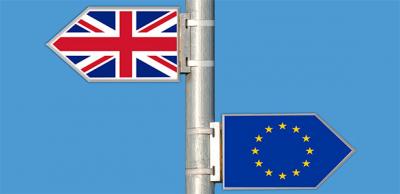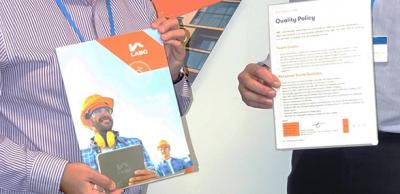What will Brexit mean for manufacturing standards?
As Government progresses with the necessary legislation to begin the Brexit process, the construction industry is asking what effect this will have on CE marking and product standards.
In short, the answer is likely to be very little, certainly in the short term.
The European standards bodies responsible for European product harmonisation are the European Committee for Standardization (CEN), the European Committee for Electrotechnical Standardization (CENELEC), and the European Telecommunications Standards Institute (ETSI). They are all independent of the European Union itself and membership of the EU is not a compulsory condition of membership of any of these bodies.
Indeed there are already four countries outside the EU that have full membership of both CEN and CENELEC (Switzerland, Norway, Turkey, and the Former Yugoslav Republic of Macedonia). CEN is one of three European Standardization Organizations that have been officially recognised by the European Union and by the European Free Trade Association (EFTA) as being responsible for developing and defining voluntary standards at European level.
From the perspective of manufacturers, particularly those who sell to Europe, all other members of the European Union will continue to follow the Construction Products Regulation (CPR). This means that any products exported will still need to be CE marked. If different standards are adopted trading will then become more costly and complicated resulting in making UK industry less commercially competitive.
Irrespective of this, as long as the CPR remains in our national legislation, compliance with the harmonised European Norms (hENs) will remain a fact of life and it is unlikely any UK companies would want to return to the 'old days' when every country had different standards and system of compliance.
In reality, European technical harmonisation relies on the use of voluntary industry standards. The standards set high level, ‘essential’ requirements and manufacturers can choose the precise way in which they demonstrate compliance within the legislation of their own member state e.g. with our own Building Regulations.
When looking to trade outside of Europe the European and international standards systems mirror each other, in fact, 95% of UK standards are international or European standards.
It is essential that the UK maintains its full membership of CEN and CENELEC by continuing to support the single standard model so that the UK retains a high level of influence in the world of standards and therefore remains competitive in the post-Brexit marketplace.
Further information
This article has been constructed referencing the publication ‘What Brexit means for industry standards - Maintaining status and influence for UK industry’ by the BSI Group:
https://www.bsigroup.com/en-GB/about-bsi/uk-national-standards-body/EUReferendum/
Interested? See A hard Brexit could cause loss of 215,000 workers, warns Arcadis
Sign up to the building bulletin newsletter
Over 48,000 construction professionals have already signed up for the LABC Building Bulletin.
Join them and receive useful tips, practical technical information and industry news by email once every 6 weeks.
Subscribe to the Building Bulletin



Comments
Add new comment